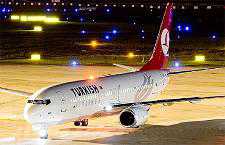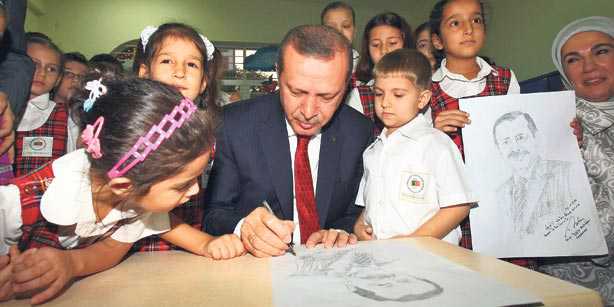GlobalData’s energy offering, “Oil and Gas Pipelines Industry Outlook in Turkey to 2014 – Details of Operating and Planned Crude Oil, Petroleum Products and Natural Gas Pipelines” .
FOR IMMEDIATE RELEASE
PRLog (Press Release) – Nov 13, 2010 – Dallas, TX: SandlerResearch announce it will carry Oil and Gas Pipelines Industry Outlook in Turkey to 2014 – Details of Operating and Planned Crude Oil, Petroleum Products and Natural Gas Pipelines Market Research Report in its Store.
Browse complete Report on: …
GlobalData’s energy offering, “Oil and Gas Pipelines Industry Outlook in Turkey to 2014 – Details of Operating and Planned Crude Oil, Petroleum Products and Natural Gas Pipelines” is the essential source for industry data and information related to the pipeline industry in Turkey. It provides asset level information related to all active and planned crude oil, petroleum products and natural gas transmission pipelines in Turkey. The profiles of major companies operating in the pipeline industry in Turkey are included in the report. The latest news and deals related to the sector are also provided and analyzed.
This report is built using data and information sourced from proprietary databases, primary and secondary research and in-house analysis by GlobalData’s team of industry experts.
Scope
Updated information relating to all active and planned crude oil, petroleum products and natural gas pipelines
Provides operator information, start year, start point, end point, onshore/offshore, length, diameter and capacity for all active and planned crude oil, petroleum products and natural gas pipelines
Identifies key trends and issues in the oil and gas pipelines industry
Information on the top companies in the sector including business description, strategic analysis. Key companies covered are MOL Group, OMV Aktiengesellschaft and RWE AG
Product and brand updates, strategy changes, R&D projects, corporate expansions and contractions and regulatory changes.
Key mergers and acquisitions, partnerships, private equity investments and IPOs.
Reasons to buy
Obtain the most up to date information available on all key active and planned transmission pipelines in Turkey
Identify growth segments and opportunities in the industry.
Facilitate market analysis and forecasting of future industry trends.
Facilitate decision making on the basis of strong pipeline data
Assess your competitor’s pipeline network and its capacity
Understand and respond to your competitors business structure, strategy and prospects.
Develop strategies based on the latest operational, financial, and regulatory events.
Do deals with an understanding of how competitors are financed, and the mergers and partnerships that have shaped the market.
Identify and analyze the strengths and weaknesses of the leading companies in Turkey.
Table of Contents:
1 Table Of Contents 2
1.1 List of Tables 5
2 Introduction 6
2.1 What Is This Report About? 6
2.2 How to Use This Report? 6
2.3 Market Definition 6
3 Turkey Pipeline Industry 7
3.1 Turkey Pipeline Industry, Overview 7
3.1.1 Turkey Pipeline Industry, Key Data 7
3.2 Turkey Pipeline Industry, Key Trends, Drivers, and Challenges 7
3.2.1 Turkey Pipeline Industry, Major Trends 7
3.2.2 Turkey Pipeline Industry, Key Drivers 8
3.2.3 Turkey Pipeline Industry, Primary Challenges 8
3.3 Turkey Pipeline Industry 9
3.3.1 Turkey Pipeline Industry, Crude Oil Pipelines 9
3.3.2 Turkey Pipeline Industry, Natural Gas Pipelines 10
3.4 Turkey Pipeline Industry, Planned Pipelines 12
3.4.1 Turkey Pipeline Industry, Planned Crude Oil Pipelines 12
3.4.2 Turkey Pipeline Industry, Planned Natural Gas Pipelines 12
Browse complete Report on: …
Browse all Energy and Power Market on:
…
Browse all Turkey on:
Browse all Global Data Market on:
Browse all Latest Report on:
Related Reports:
Oil and Gas Pipelines Industry Outlook in the US to 2014 – Details of Operating and Planned Crude Oil, Petroleum Products and Natural Gas Pipelines
China natural crude oil and natural gas mining industry, 2010
Oil and Gas Exploration and Production Outlook in Libya to 2014 – Details of Major Crude Oil and Natural Gas Blocks and Fields
Oil and Natural Gas Corporation Limited Oil & Gas Exploration and Production Operations and Cost Analysis – 2009
Turkey Oil and Gas Pipelines Industry to 2013 Investment Opportunities, Analysis and Forecasts of All Active and Planned Pipelines in Turkey
About Us:
Sandler Research houses a comprehensive online library of more than 10,000 reports, in-depth market research studies of 5000+ micro markets, and 25 industry specific websites. The reports are analytically and statistically rich, and offer a comprehensive view of the dynamic market scenario across the globe.
Our client list boasts of many eminent publishers of such reports from across the world. As a third-party reseller of market research reports, we employ various marketing tools, such as press releases, email-marketing and effective search-engine optimization techniques, in order to generate better revenues for our clients, entailing positive and robust results.
We also provide 24/7 online and offline support to our customers.
Contact:
Ms. Sunita
7557 Rambler road,
Suite 727, Dallas, TX 75231
Tel: +1-888-989-8004
Website:
# # #





